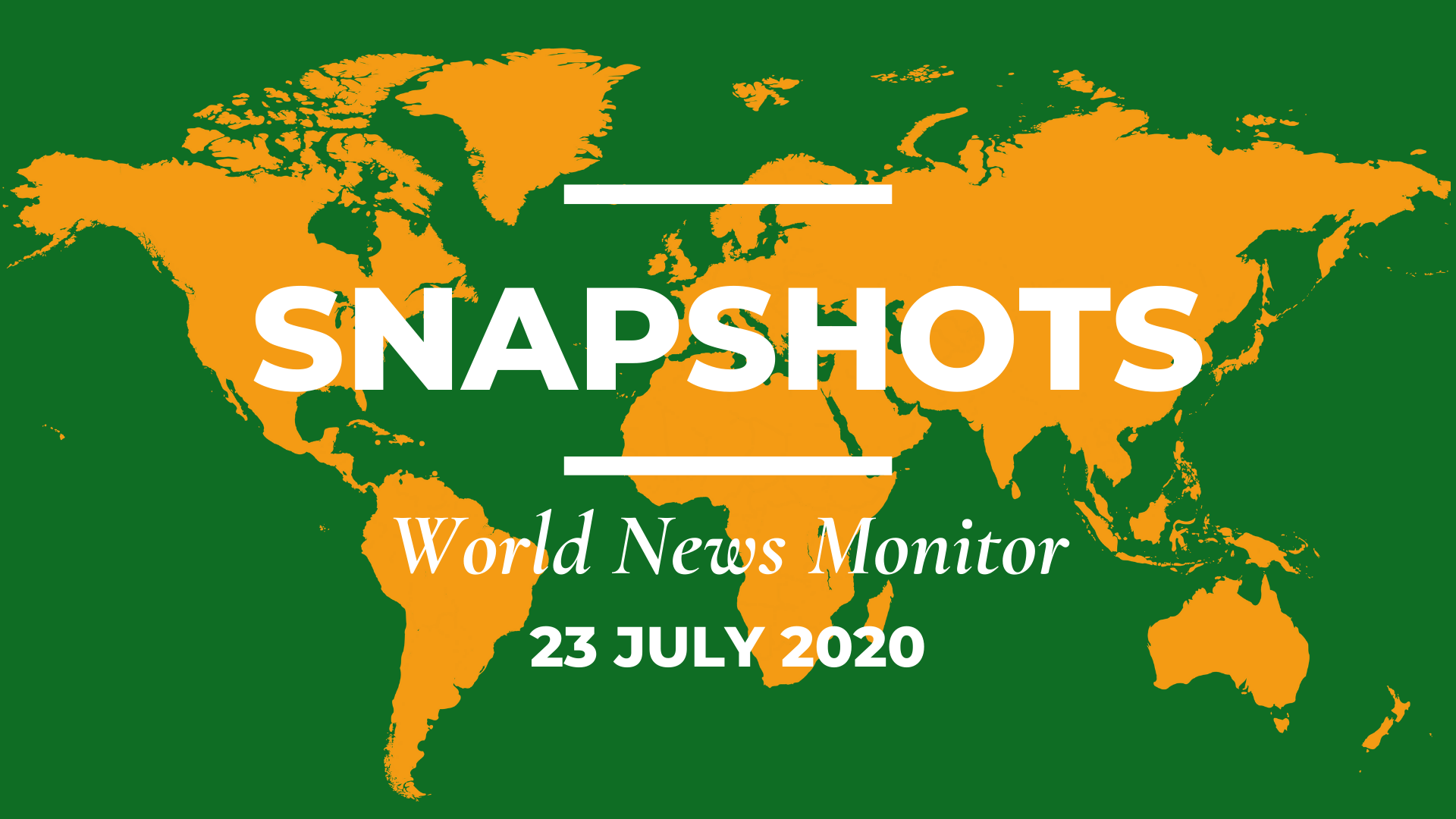South Asia
During the India Ideas Summit on Wednesday, Prime Minister Narendra Modi advocated for increasing US investment in India. He said that even during the economic slump caused by the COVID-19 outbreak, India saw Foreign Direct Investments amounting to $20 billion in the April-July period. [Livemint]
Nepal’s political turmoil continues, as a reallocation of cabinet positions is predicted following the party meeting scheduled to take place on July 28. Experts say that the Chinese Ambassador in Nepal, Hou Yonqi, is a key player in the negotiations between the multiple factions in the ruling party. [Hindustan Times]
East and Southeast Asia
South Korea has entered recession as exports—which account for nearly 40% of the economy—hit a 57-year low, shrinking by 16.6%. [Channel News Asia]
China has rejected French claims about the imprisonment and mistreatment of Uighurs and other Muslim minorities, asserting that issues in Xinjiang have nothing to do with human rights, ethnicity, or religion but about “countering violent terrorism and separatism”. Beijing’s remarks came a day after Paris demanded that China let independent human rights observers visit the region, where it is estimated that over one million Uighurs and other Turkic-speaking minorities have been rounded up into a network of internment camps. [Straits Times]
Europe
German Defense Minister Annegret Kramp-Karrenbauer recommended the resolution of the Nord Stream 2 pipeline issue after the United States threatened to impose sanctions on companies involved in the project. The US, along with some other Eastern European countries, believes that the pipeline will cause an over-dependence on Russia for EU’s energy needs. [DW]
The construction of a large new Central Mosque in Kosovo’s capital city Pristina, which has been largely financed by Turkey, led to protests in the city on Monday and Wednesday. The Kosovo Liberation Army, which initiated the demonstration, clarified that the protest aimed to demand transparency and not necessarily oppose the mosque. [Balkan Insight]
Latin America and the Caribbean
Volunteers in Brazil have been injected with a vaccine made by Chinese pharmaceutical giant Sinovac. This spells the beginning of Phase 3 of clinical trials, which is the final stage of testing, large-scale testing on humans, before regulatory approval. [Bangkok Post]
Middle East and North Africa (MENA)
Bashar al-Assad’s Baath party and its allies have predictably won a majority in the latest Syrian parliamentary election. The opposition, which has been exiled, has labelled the ballot as a “farce”. [DW]
Thousands of protestors gathered around Israeli Prime Minister Benjamin Netanyahu’s Jerusalem residence to rally against the leader’s handling of the coronavirus-induced economic crisis. The demonstrators later marched into the Knesset, supervised by the police; 34 protestors were arrested. [Haaretz]
North America
The US government has ordered the closure of the Chinese consulate in Houston, Texas, “in order to protect American intellectual property and Americans’ private information”, in the latest escalation of tensions between the two nations. The exact details regarding what prompted the decision have not been revealed yet. [CNN]
US Senators on Wednesday introduced comprehensive legislation aimed at countering China on multiple fronts including intellectual property theft, government subsidies, and defense capabilities in Asia. The bill, known as the Strengthening Trade, Regional Alliances, Technology, and Economic and Geopolitical Initiatives Concerning China (STRATEGIC) Act, aims to address the issues that have strained US-China relations but also seeks cooperation on arms control and the environment. [South China Morning Post]
Oceania
Australia’s budget deficit is predicted to rise to $184.5 billion during the current financial year as a result of the coronavirus pandemic, said Treasurer Josh Frydenberg. Net debt is forecasted to rise to $677 billion, the GDP is likely to contract by 3.75%, and unemployment is expected to reach 9.25%. [ABC News]
Sub-Saharan Africa
Ugandan President Yoweri Museveni confirmed that he will be seeking re-election in February 2021, which would extend his rule to four decades. For the first ten years, he ruled without holding elections, and he has since amended the two five-year term limit and removed the age cap of 75. [The East African]
World News Monitor: 23 July, 2020
A quick look at events from around the globe.
July 23, 2020

